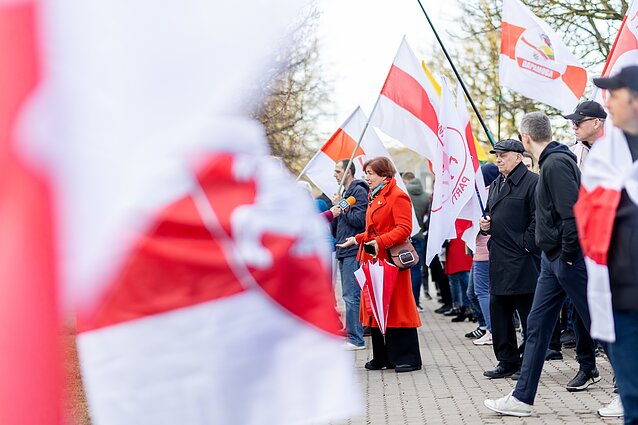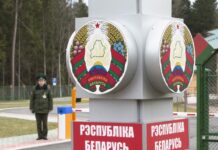
With the proposed closing of two more border crossings between Belarus and Lithuania, politicians are discussing proposed restrictions on Belarusians coming to Lithuania, and have been invoking the threat of “Litvinism”. Yet according to Lithuania’s State Security Department (VSD), this fringe nationalist ideology is not seeing an upswing, reports LRT.lt.
“According to the assessment of the VSD, the activities of the supporters of the ideology of Litvinism do not pose a real threat to the sovereignty, constitutional order and territorial integrity of the Republic of Lithuania at the moment, but the ideological attitudes disseminated by them may increase inter-ethnic tensions and incite negative attitudes towards the part of the Belarusian community that is loyal to the state of Lithuania,” announced the intelligence agency.
Litvinism, according to the VSD, is a radical branch of Belarusian nationalism. It holds that modern-day Belarusians are the true heirs to the legacy of the Grand Duchy of Lithuania, making claims to part of the territory of present-day Lithuania – including the capital Vilnius – and other countries surrounding Belarus. The Grand Duchy of Lithuania covered most of Lithuania, Belarus and parts of Ukraine between the 13th and 18th centuries.
The VSD notes that supporters of Litvinism are also hostile to the governments of Belarus and Russia and reject their historical narrative claiming that Russians and Belarusians are “one people”. As a result, some of the most active advocates of Litvinism have faced repressions at home and fled to EU countries, including Lithuania.
According to the VSD, ideological spats between Lithuanian and Belarusian nationalists over Litvinism have been going on for more than two decades in niche online forums. “There is no evidence of a significant increase in the dissemination of Litvinist ideology on social networks in recent months, but some incidents or statements on social networks by supporters of the ideology have resonated in the Lithuanian information space and have prompted discussions about the risks associated with such activities,” the agency said.
Some politicians have invoked Litvinism as an argument to press for restrictions on migration from Belarus. Vilnius-based Belarusian opposition leader Sviatlana Tsyhanouskaya said that the controversy was artificially stoked in order to undermine relations between Belarusians and Lithuanians. She said that “there is no such discussion in Belarus” and insisted that she herself would never question Lithuania’s territorial integrity.
The historical flag with the traditional emblem was used by protesters in Belarus in response to the 2020 Presidential Elections in which opposition parties disputed the results of Alexander Lukashenko winning the election. Both the flag and the emblem are widely used symbols of the opposition and ex-pats/diaspora.






























